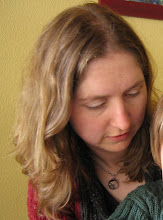A few months ago I sauntered into the bar one night after work, to meet a few friends. Almost as soon as I sat down, the question was asked. How do you spell 'segue'?
Well, S-E-G-U-E was my best guess, but I couldn't shake the feeling that it needed an accent or something. I tried every other possible spelling I could think of - there aren' t many - and they all looked pretty silly. Most people at the table felt they - sort of - knew what it meant, but no one was that confident about it. We decided it was some kind of transition, often used in the context of a conversation, as in "Hey, nice segue!" when someone smoothly changes the topic.
After we had debated the spelling for a while, I had a brainwave. "I'll call Mum, she'll know about it for sure!" I declared to the whole group, thus setting up my mother as a spelling guru. I whipped out my mobile and dialed my parents' number. Dad answered, listened to my question, had no idea what I was talking about, and went to get Mum, who was vacuuming at the time. Sadly, Mum didn't seem to know what I was talking about either. I put this down to a combination of things. a) She was in the middle of cleaning when I interrupted her with a question about an obcsure word, so maybe she was a bit distracted. b) I was convinced that if she saw the word written down in some sort of context, she would have been able to correct the spelling, no worries. c) I had a nagging feeling that I had mostly seen the word on US websites and I thought maybe it was uncommon here. Don't worry Mum, I still consider you the guru.
My initial dictionary search led me to think I had been right about the US English suspicion. Merriam-Webster (online) had it:
Etymology: Italian, there follows, from seguire to follow, from Latin sequi
Date: circa 1740
1. proceed to what follows without pause -- used as a direction in music
2. perform the music that follows like that which has preceded -- used as a direction in music
Date: circa 1913
1. to proceed without pause from one musical number or theme to another
2. to make a transition without interruption from one activity, topic, scene or part to another
And when I checked the Macquarie and Australian Oxford, I couldn't find it. It was a couple of weeks before I thought to check in the BIG Macquarie, and sure enough, my assumptions about it being mostly used by Americans had led me astray. There was a very similar definition there, and in the big Oxford.
So, there you go, an Italian music term, adopted for everyday English use. I'm surprised I don't hear it used more often, it seems pretty useful. I can't think of any direct synonyms, at least at the moment. (And I haven't got a big enough thesaurus) Let me know if you think of any.
Subscribe to:
Post Comments (Atom)

No comments:
Post a Comment